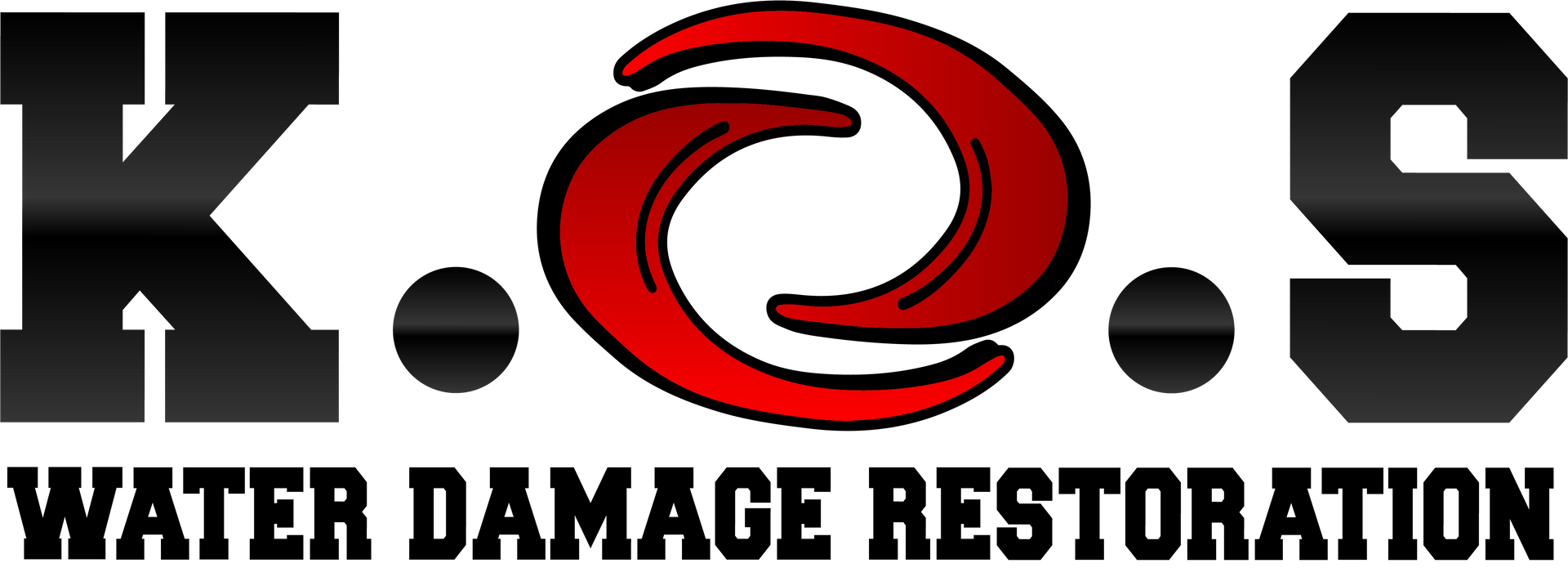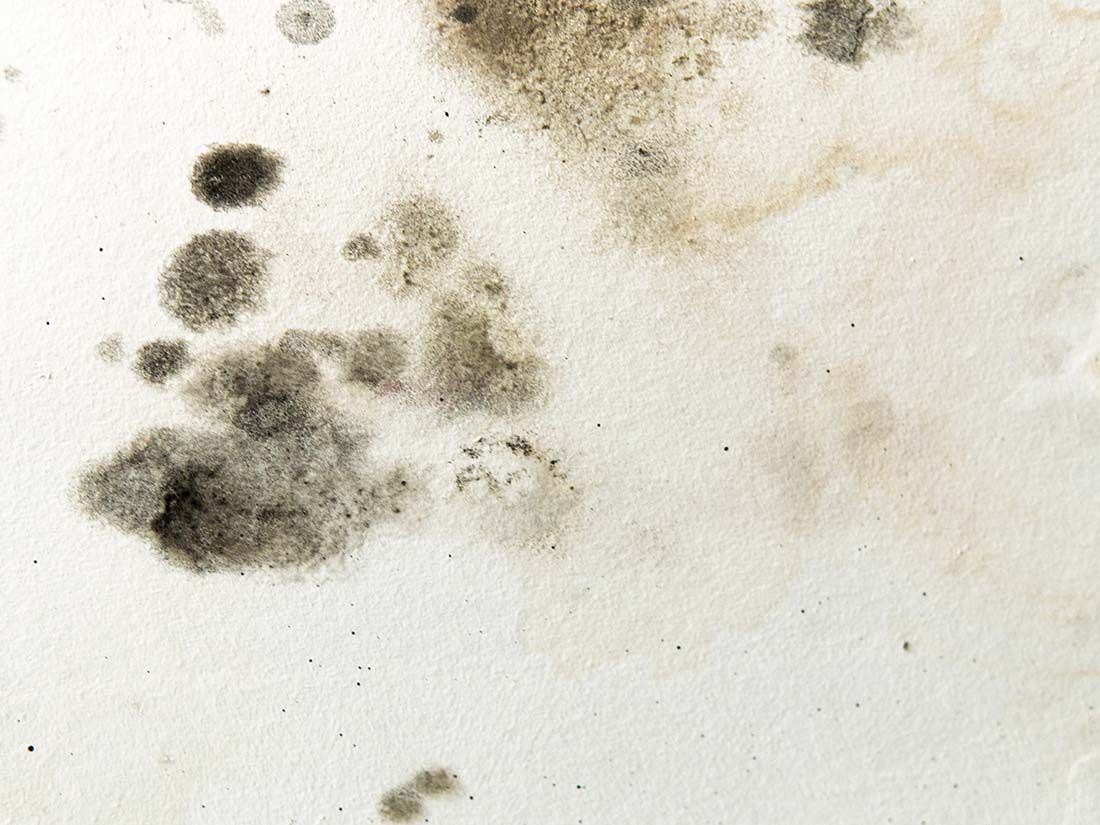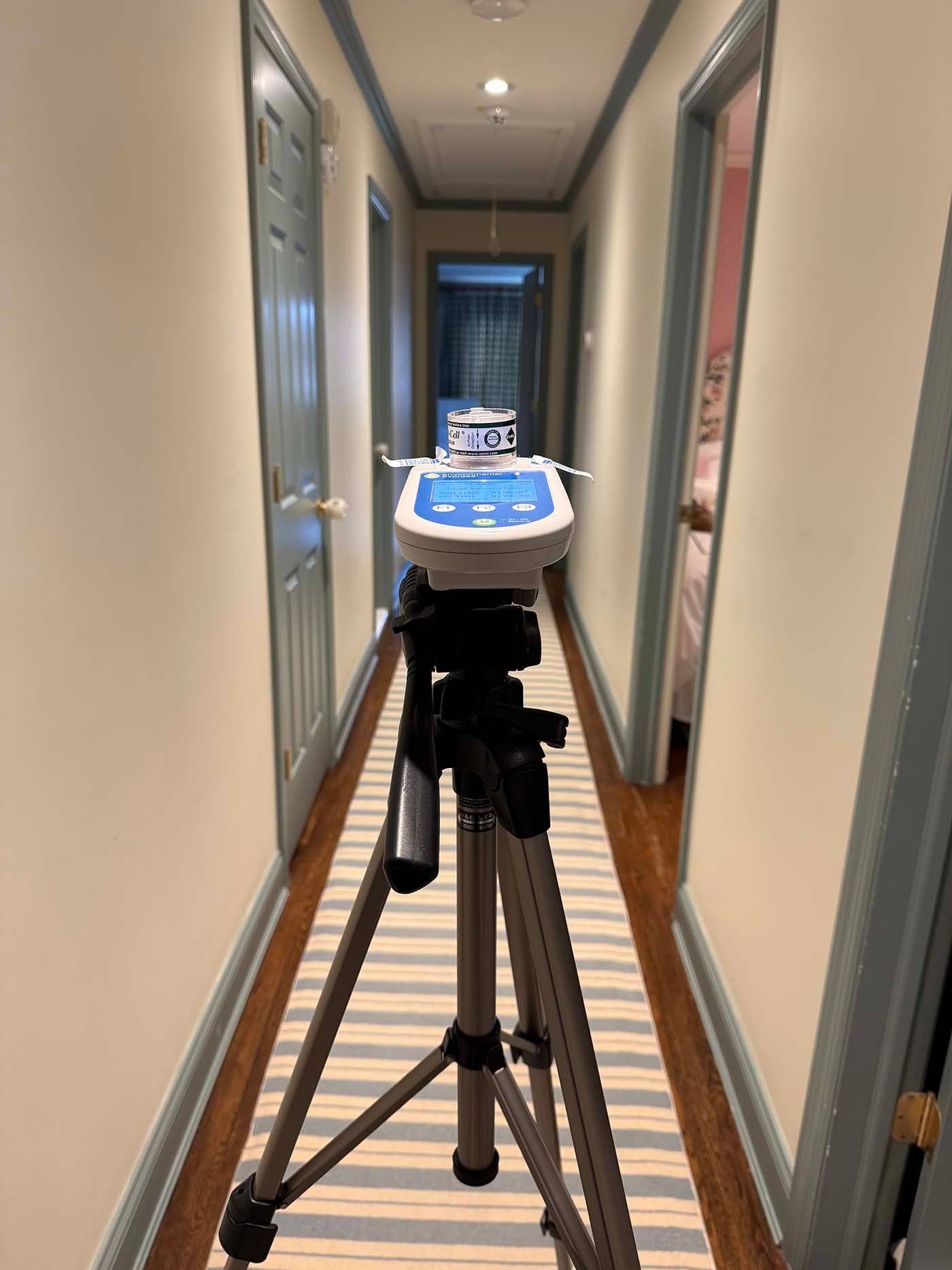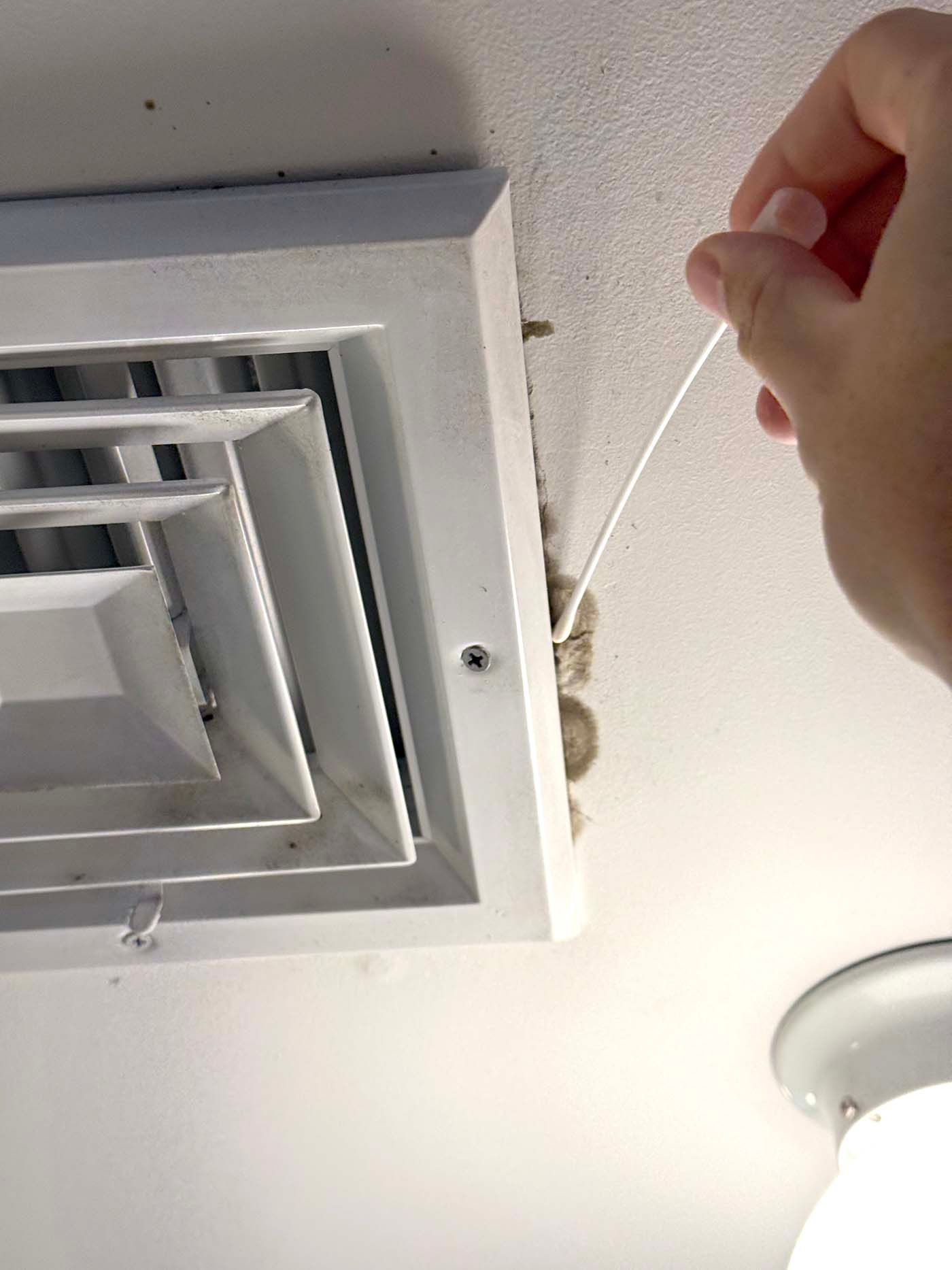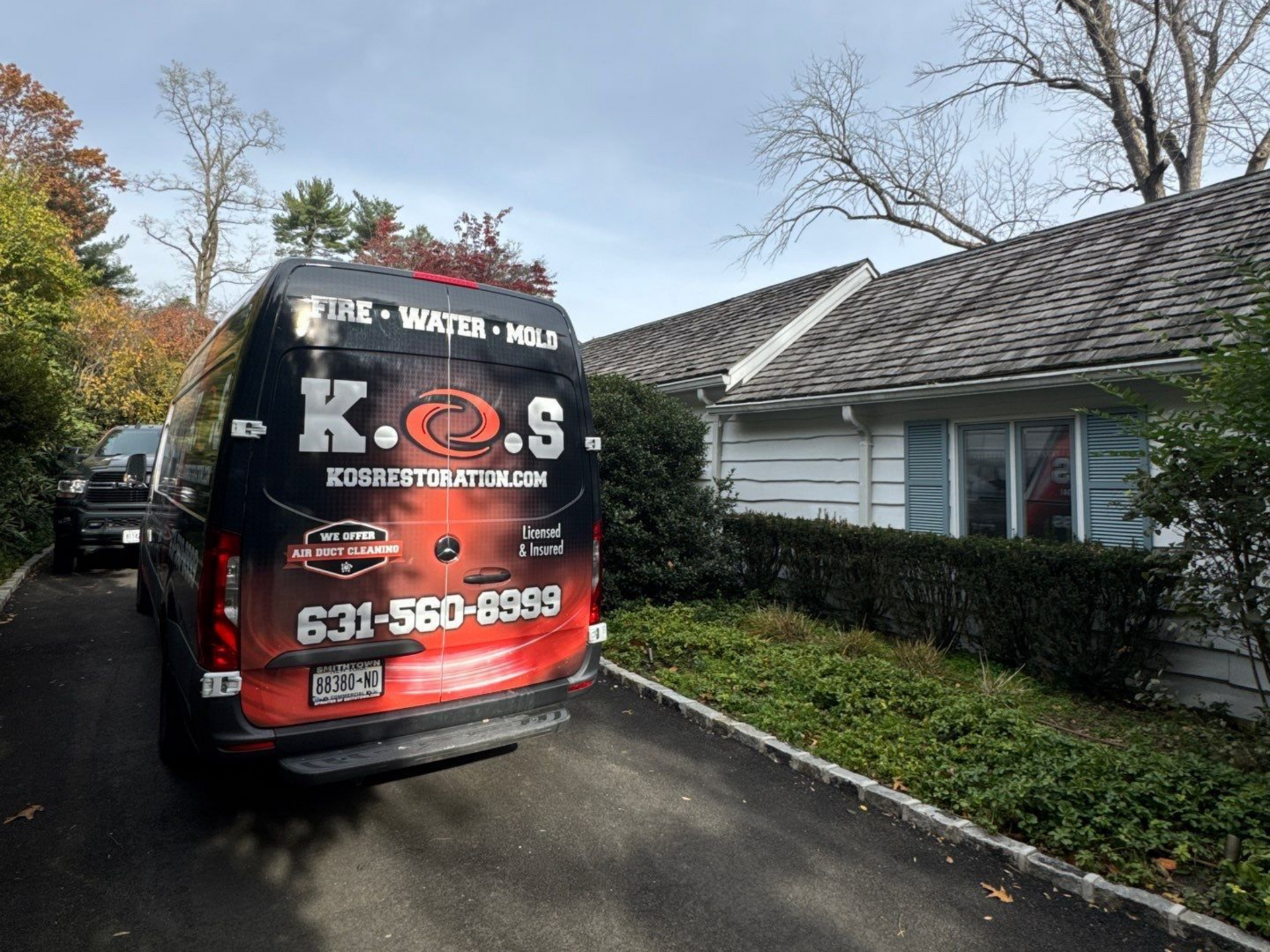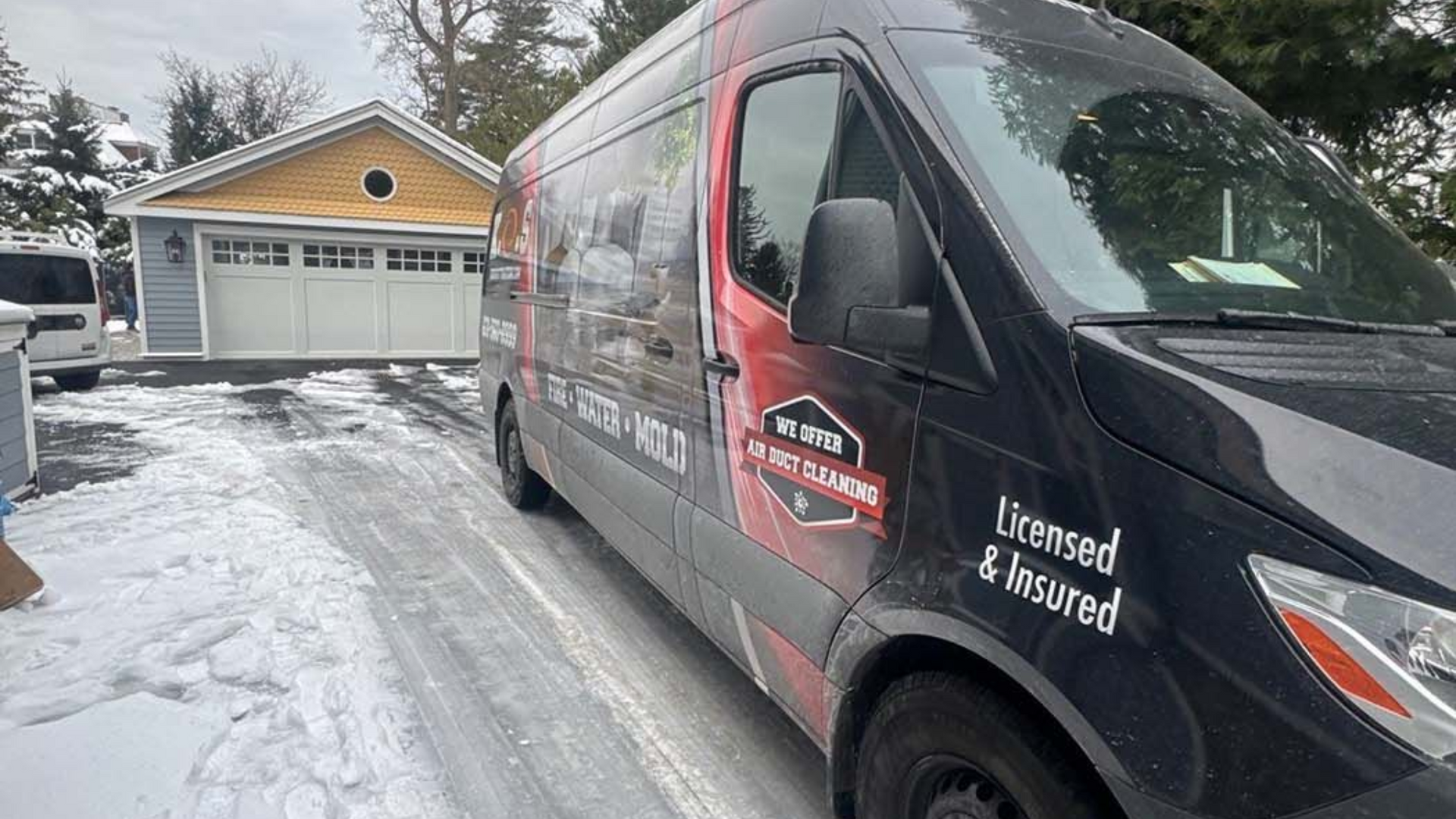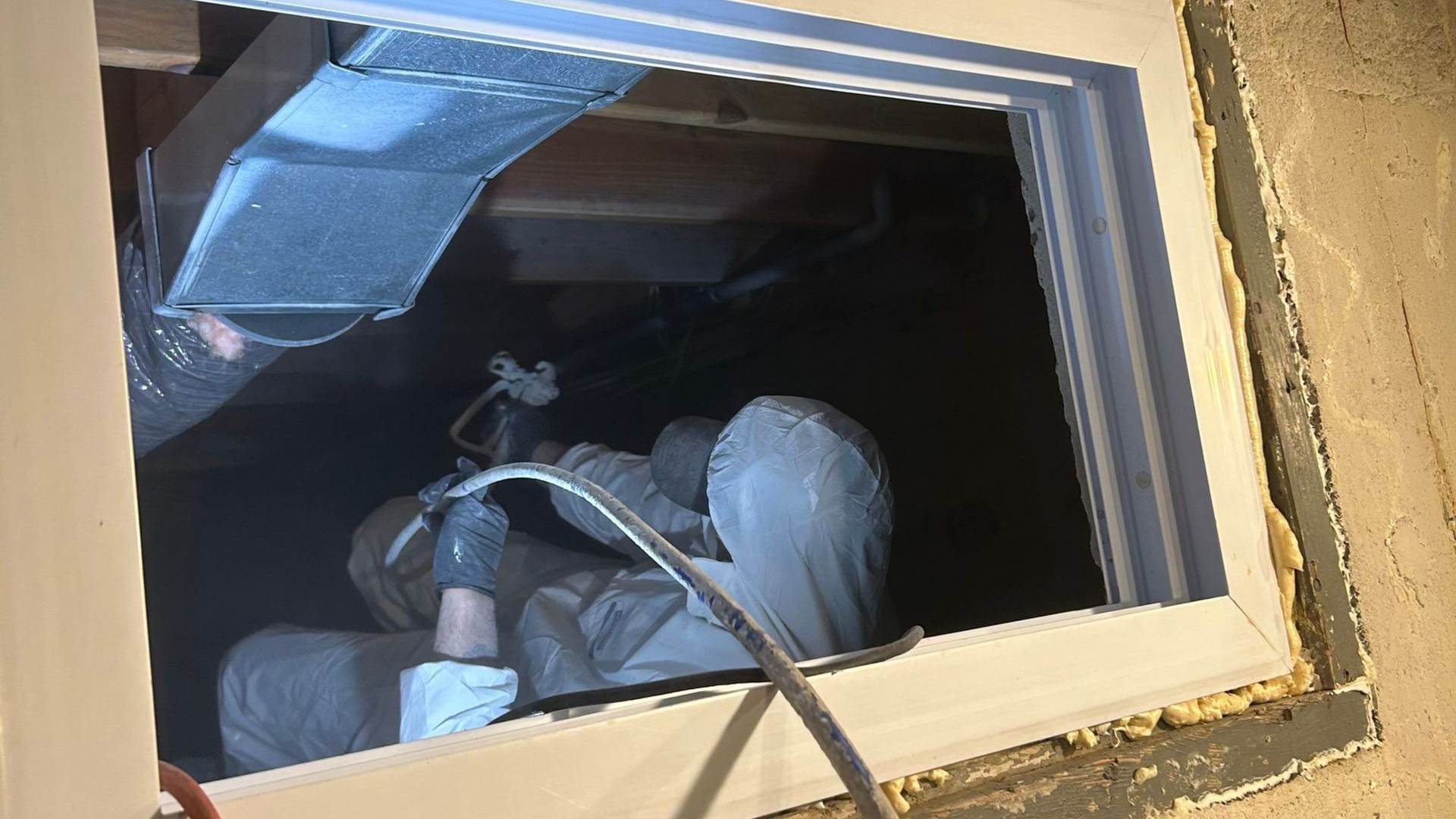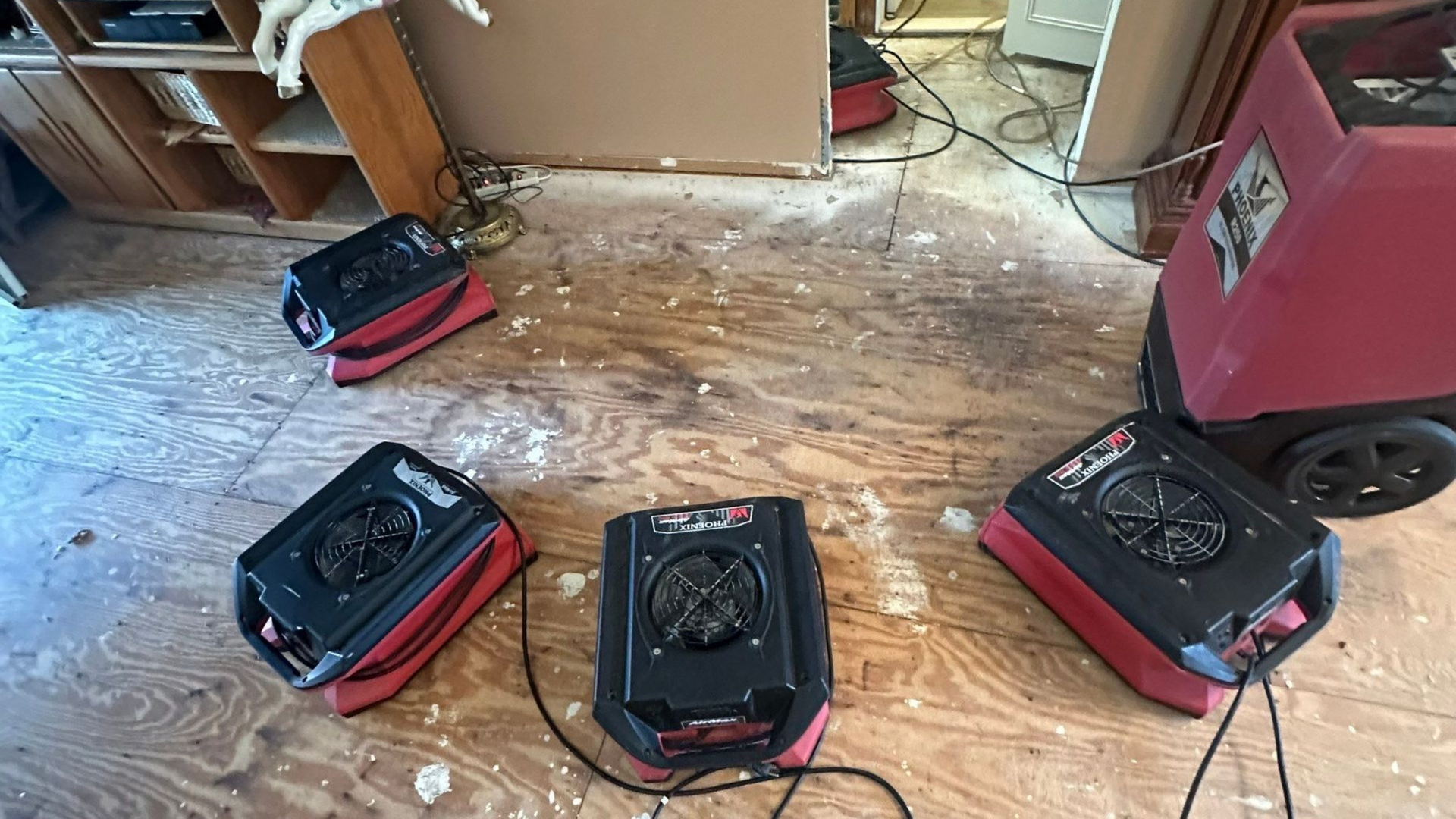Who should I call first for mold on Long Island—an inspector or a remediator?
In New York, a licensed mold assessor must handle the inspection/testing and write the protocol.
By law, the company that assesses can’t be the same company that remediates the mold on the same job.
K.O.S. Restoration coordinates a NYS-licensed, independent assessor for you, then—if needed—our IICRC-certified team follows the assessor’s plan to safely remove the mold and restore your home.
If You Suspect Mold Don't Delay Our Certified Team Can Help
We know how stressful it feels to smell that musty odor or spot a dark patch on a wall and wonder, “Is my family safe?” You shouldn’t have to guess. On Long Island, the right first step is a conflict-free mold inspection performed by a NYS-licensed assessor—not a contractor trying to sell remediation before testing.
At K.O.S. Restoration, we make this simple: we’ll schedule an independent, licensed assessor to test your home, explain the findings in plain English, and write a clear protocol.
If remediation is needed, our IICRC-certified team will follow that plan, set up containment, perform HEPA vacuuming, targeted cleaning, and—where appropriate—mold encapsulation to help prevent recurrence in moisture-prone areas (like basements and attics).
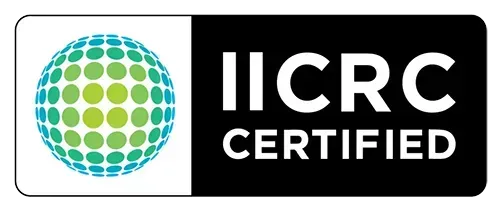
Why Homeowners Choose K.O.S.
- No conflict of interest: We coordinate testing with independent NY-licensed assessors only.
- Certified & trusted since 2006: IICRC-certified team, 250+ 5-star reviews, locally owned.
- Fast response: 24/7 service; ~45-minute response to much of Suffolk County.
- Full restoration: From
water removal &
structural drying to
mold remediation and post-clearance support.
Service Areas: Nassau County • Suffolk County • Queens, NY
How Mold Inspection & Testing Works
- Initial call & moisture check: Tell us what you’re seeing, smelling, or feeling—musty odors, past water leaks, attic humidity, bathroom or basement issues. We’ll quickly coordinate next steps and discuss whether initial moisture readings make sense before testing.
- Independent, NY-Licensed Mold Assessor: A third-party assessor performs the inspection & testing. This may include air sampling, surface (swab or tape) sampling, and moisture mapping. You’ll get a written report with lab results and a mold remediation protocol if needed.
- Clear Plan & Estimate: K.O.S. reviews the assessor’s protocol with you and provides a transparent remediation plan (scope, timeline, safety measures, and after-care) in line with IICRC S520 best practices.
- Containment, Cleaning & Drying: If remediation is needed, we set up containment and negative air, perform HEPA vacuuming, selective removal (if required), targeted enzyme/antimicrobial cleaning, thorough drying, and encapsulation where appropriate.
- Post-Remediation Verification (PRV): The independent assessor (not K.O.S.) performs a clearance inspection or testing to confirm success. You’ll receive a final report for your records.
Do I Need Mold Testing?
If you’re in New York, testing/assessment comes first when a formal plan or lab confirmation is needed (e.g., bigger or hidden issues, sale/lease requirements, landlord/tenant documentation, health concerns, or insurance questions).
Common signs it’s time to inspect:
- Musty odor that won’t go away
- Recent or ongoing moisture: leaks, floods, high humidity, damp basements
- Visible spots (black, green, white) or discoloration behind furniture, in closets, or on attic sheathing
- Health symptoms some people report around mold (stuffy nose, irritation)
- Buying/Selling a home and you need documentation
What Happens If the Test Finds Mold?
Don’t panic—we’ll walk you through it.
The assessor’s protocol tells us exactly what to do. K.O.S. handles the remediation carefully and keeps your family safe throughout:
- Containment & negative air to prevent spread
- HEPA filtration & vacuuming of affected areas
- Targeted removal of unsalvageable materials (when required)
- Cleaning & drying to remove spores and fix moisture conditions
- Encapsulation for moisture-prone areas like basements and attics
- Post-remediation verification by the independent assessor
Pricing, Timing & What to Expect
- Inspection/Testing Cost: Set by the independent assessor, not K.O.S. Costs vary by home size, number of samples, and complexity (e.g., attic + basement). We’ll connect you with a fair, NYS-licensed pro and outline expectations up front.
- How Long It Takes: The inspection itself is often 1–2 hours; lab results typically follow within 1–3 business days (rush options may be available—ask).
- Remediation Timeline: Depends on scope. Many projects finish in 1–3 days; larger or multi-area jobs can take longer—we’ll give you a clear schedule before we start.
- Insurance: Coverage varies: If a sudden water event caused the mold, your insurer may help with certain parts. We’ll guide you through documentation.
Why K.O.S. for Your Mold Situation?
- We understand how overwhelming this is: We’ll coordinate the right NY-licensed assessor, then handle remediation exactly to the plan—no upsells, no shortcuts.
- IICRC-Certified & top-rated since 2006: Our technicians are trained to protect your home and deliver clean clearance results.
- Fast local response: Long Island & Queens coverage with 24/7 availability and ~45-minute Suffolk response.
- Honest, caring communication: We explain every step, keep you updated, and treat your home like it’s our own.
What Our Clients Are Saying
Work With Our Top Rated Mold Remediation Team
FAQ'S About Mold Inspections & Testing
How much does mold inspection cost on Long Island?
Costs are set by the independent, NY-licensed assessor and depend on home size, areas tested, and number of samples.
After we learn more about your situation, we’ll connect you with a vetted assessor and outline expected pricing before any work begins.
How long does a mold inspection take, and when do I get results?
The on-site inspection is often 1–2 hours. Lab results are typically 1–3 business days (rush may be available).
Air testing vs. swab/tape—what’s the difference?
Air samples measure spores in your indoor air; swab/tape samples test a specific spot or surface. Assessors choose the right combo to answer: Is there elevated mold? Where? What type?
Do I need a mold test if I can already see mold?
Visible growth suggests a problem, but testing helps determine extent, types, and a remediation plan—and provides documentation many buyers, landlords, and insurers require.
Is “black mold” more dangerous?
Some molds (like Stachybotrys) are frequently called “black mold,” but color alone doesn’t identify type. That’s why independent testing and a lab report matter.
Can the same company inspect and remediate my mold in New York?
No. New York law separates assessment from remediation on the same project. We coordinate a licensed assessor and then, if needed, K.O.S. performs the remediation per the assessor’s protocol.
I smell musty odors in the basement/attic—do I need testing?
Persistent musty odors often indicate moisture and possible mold. An assessor can test the space and recommend fixes; if remediation is needed, we’ll follow their plan and address moisture so it doesn’t return.
How fast can you get someone here?
We offer 24/7 help. We can typically coordinate an assessor quickly and start remediation promptly if needed.
Will insurance cover this?
It depends on the cause (e.g., sudden water damage vs. long-term humidity). We’ll help you with documentation for your carrier.
What if I used a DIY test kit?
DIY kits can be misleading. Independent, NY-licensed assessment provides reliable sampling, clear protocols, and documentation you can confidently act on.
Worried about mold? We can help—today.
Call (631) 560-8999 or request coordination with a NY-licensed assessor now. After testing, our IICRC-certified teamwill follow the plan to restore your home—and your peace of mind.
